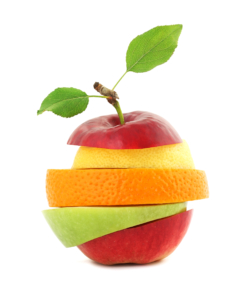Introducing Solids To Your 6 Month Old
As a pediatric feeding therapist I help parents introduce baby foods to their sweet little ones. But how do you know when a baby is ready? In this blog I will tell you exactly how to know when to start feeding your baby purees.
If you have a baby I am sure you look forward to the day when you can start feeding your little one food. I started feeding my oldest pureed baby food when he was four months old.
I was eager and ready to start. Although he wasn’t demonstrating signs of readiness I went ahead and started. Not such a smart move from a feeding therapist but I went with my mama heart. oops.
Although he did fine and progressed nicely it isn’t always so easy for some kids, especially the earlier we start feeding them. As a pediatric feeding therapist I really started to look at all of the skills that have to be in place for a baby to become a successful eater.
By the time I had my second child I waited until six months. Wow! What a difference two months can make! I want you to have this knowledge for when to start feeding your baby purees too!
Have you ever tried to start feeding your baby before they can sit on their own? Have you tried to feed your baby before they are cognitively aware of what they are doing or you are doing?
For example, at four months most babies are not gazing back and forth between your plate and your mouth to watch you bring the fork to your mouth from the plate.
By six months, many babies are very well aware of this and are most likely sitting independently or with minimal support and really watching you eat. These are just two signs that your baby may be ready to start eating.
As a feeding therapist I look for several signs and I also look at how the child is developing cognitively and medically.
Signs your baby is ready to start eating
Some signs include but are not limited to the following skills:
-Can hold his head steady while sitting, sitting with minimal support or independently (I prefer if they are sitting independently).
-Bringing hands to midline
-Mouthing objects and toys
-Showing interest in mealtimes, watching caregivers and siblings eat, and opens mouth wide at the sight of the spoon. Also, happy and content when around food or with bottle feeds, and eating with ease on a bottle.
You can also check out this post HERE for introducing baby food must dos so that you have a smooth experience from the get go.
Signs that could impact readiness for feeding your baby
History of:
reflux
constipation
tongue tie
aspiration(food and/or liquid going into airway
difficulty with feeding (breast and/or bottle)
delayed gross motor skills (late or skipped crawling, not sitting with support, etc)
delayed fine motor skills (not bringing hands to midline, difficulty picking up small objects, not mouthing or bringing objects to mouth to explore.
low tone (low quality in muscles of the body and mouth)
muscle weakness
These are some of the signs of readiness and some signs that may impact baby’s ability to safely and efficiently start eating purees and table foods.
To learn more about why these skills are essential for a baby to develop into a healthy, happy eater I have made ya’ll a video.
The video breaks down the importance of skills, how children develop from a feeding standpoint, and why these skills are so important for helping our child become happy eaters
Click here to view a video I made that explains more about the details from above! For more help please reach out to me and view services on my website for extra help! I am always here as a resource.




